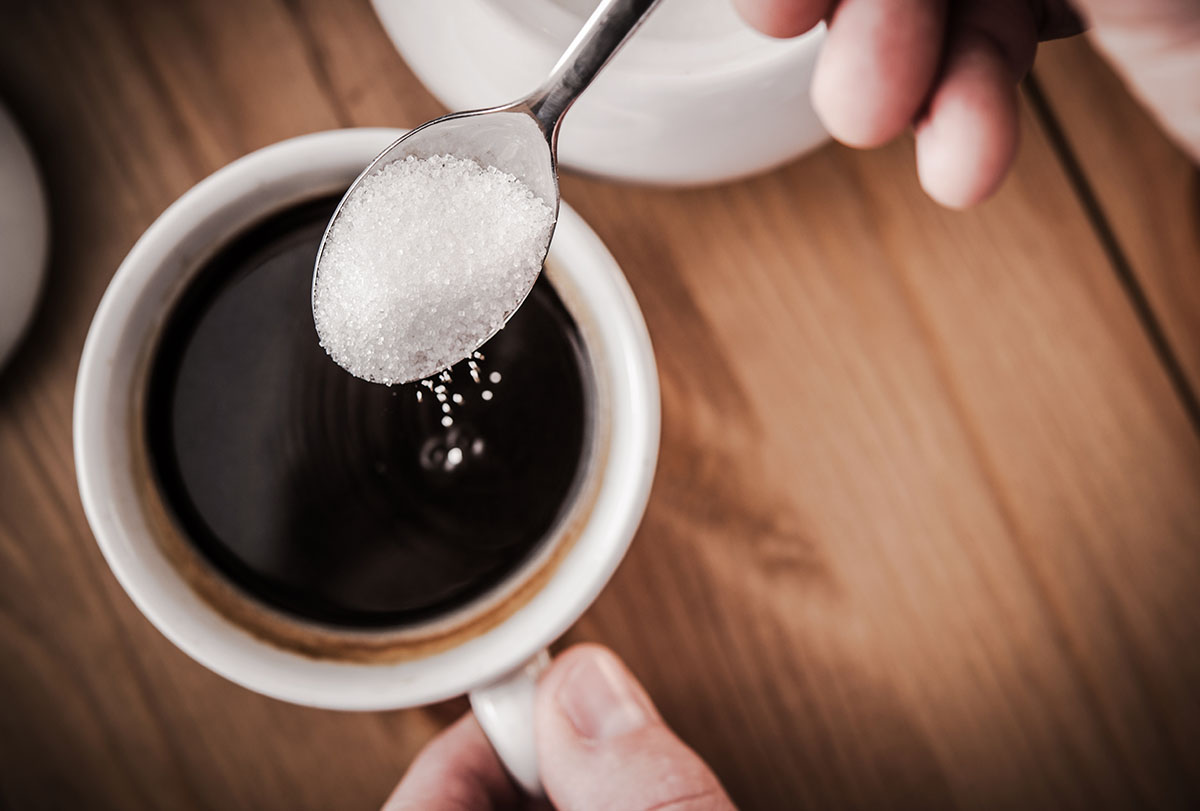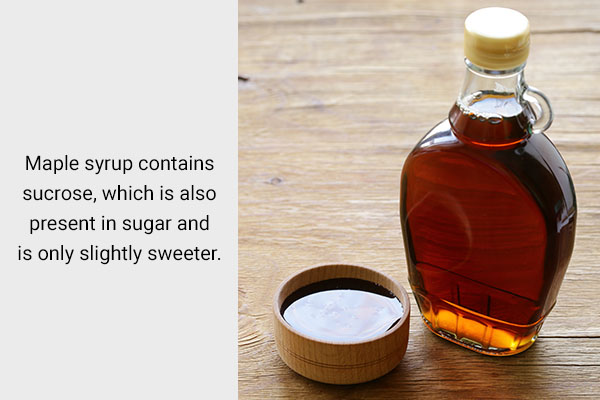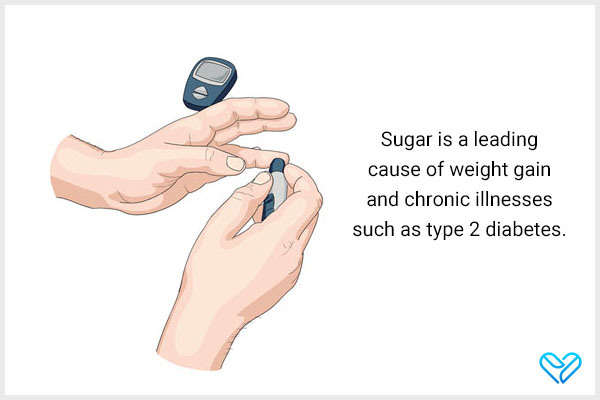In this article:
Coffee is regularly consumed all over the world, sometimes even multiple times a day.

While some people choose to drink a plain black coffee with no milk or sugar, some choose elaborately made coffee drinks including lattes, cappuccino, iced coffee, or flavored coffee (such as with mint or spices).
One of the biggest concerns associated with drinking multiple cups of coffee each day is the elevated intake of sugar associated with it.
An increasing number of studies have found an association between sugar consumption and an increase in the risk of diseases such as heart diseases, diabetes, obesity, fatty liver, and elevated cholesterol levels. (1)
For this reason, many have turned toward either consuming sugar-free drinks or trying sugar-free alternatives.
Alternatives to Sugar in Coffee
Although there are many sugar alternatives available, not all are suited to be added to coffee. Aftertaste is a huge concern when it comes to sweeteners as they may interfere with the palatability of your beverage.
Based on user preferences, these sugar alternatives can be used.
1. Liquid stevia
Stevia is nature’s zero-calorie sweetener obtained from the leaves of the stevia plant. Though it is native to South America, it is widely commercialized now and grows in countries such as Vietnam, India, Argentina, Brazil, and Colombia. It is available as both a powder and a liquid. (2)
Stevia plant was first recorded in 1899 as Eupatorium rebaudianum by Moises Santiago de Bertoni in Paraguay. It was only in 1905 that it began to be recognized as Stevia rebaudiana, a member of the Asteraceae family.
Its sweetness can be attributed to the presence of steviol glycosides in the leaf, which can be up to 250–300 times sweeter than sugar. (2)
Though stevia has a bitter taste at high concentrations, due to its extreme sweetness, low amounts can be used to mimic sugar’s sweetness. These low concentrations seem to have much more acceptance according to studies. (3)
An added benefit of liquid stevia is that it does not spike blood sugar levels after consumption, which makes it a suitable sugar substitute for people with type 2 diabetes. (4)
2. Agave syrup
Agave, like stevia, is also obtained from a plant. Sap from agave plant species, specifically Agave salmiana and blue agave, contains high amounts of fructans, which contribute to its sweetness. (5)
The agave plant grows in arid and semi-arid regions of Central and North America, as well as Mexico. It has adapted to storing water whenever available to make up for periods of low availability.
Agave syrup has high acceptability and is generally sweeter than sugar. It has a low glycemic index, and because it is obtained from a plant, it contains vitamins, minerals, and health-benefiting polyphenols. (5)
3. Maple syrup

Maple syrup is perhaps the oldest well-known sugar alternative. It is obtained from the processing of sap obtained from the sugar maple tree. Canada remains to be the world’s main supplier, accounting for 92% of global maple syrup production. (6)
Of the many natural sweeteners distributed in the market, maple syrup is recognized as a superior alternative to refined sugar due to its mineral content and high concentration of phenolic compounds that confer benefits such as being antimutagenic, antioxidant, and anticancer agents.
Maple syrup contains sucrose, which is also present in sugar and is only slightly sweeter. But it also contains minerals such as zinc, potassium, calcium, zinc, and manganese, giving it a unique quality.
Maple syrup also slows the release of sugar into the blood and is good for people with type 2 diabetes. (6) Moreover, maple syrup is well accepted by consumers.
4. Coconut sugar
Coconut sugar is obtained from cooking down the sap collected from the blossoms of the coconut palm tree. It contains important polyphenols and nutrients such as calcium, phosphorus, iron, and some amounts of B vitamins.
Coconut sugar also has a low glycemic index, making it suitable for diabetics. (7) It has a mild nutty taste, which compliments the taste of your coffee well.
5. Honey
Honey is nature’s golden elixir and has been used by civilizations for ages due to its medicinal benefits. It contains fructose and glucose, which reduce its glycemic index and make it a suitable sugar alternative. (8)
Packed with antioxidants, polyphenols, flavonoids, and nutrients such as selenium, copper, and zinc, honey can boost immunity and improve overall health. (8)
It is important to note that honey does have its own flavor and may influence the taste of coffee itself. However, it can be used to make coffee flavors such as honey-lavender coffee.
Reasons to Give Sugar Alternatives a Shot
Some health benefits you can experience by choosing the sugar alternatives mentioned in this article include the following:
- As mentioned, most sugar substitutes slow down the release of sugar into the blood and delay insulin spikes. These actions make them preferable alternatives to sugar for diabetics. (9)
- Sugar substitutes can reduce the calories of your drink as most are sweeter than sugar, which means you will need a lesser amount to sweeten the drink. This can aid in weight loss. (9)
- Maple syrup has also been identified to offer some protection against cancer. (10)
Are These Sugar Substitutes Safe for Children?
Unless they are allergic to them, children can be given these sugar substitutes as they are plant-based and natural.
Practical Takeaways

- Sugar is a leading cause of weight gain and chronic illnesses such as type 2 diabetes.
- Excessive beverage consumption can rack up the total sugar intake for the day. For this reason, sugar substitutes can be beneficial.
- Stevia, agave, maple syrup, coconut sugar, and honey are effective replacements with little aftertaste. Not only are they sweeter than sugar, but they also reduce blood sugar spikes and can be safely consumed by people with diabetes.
- Was this article helpful?
- YES, THANKS!NOT REALLY


